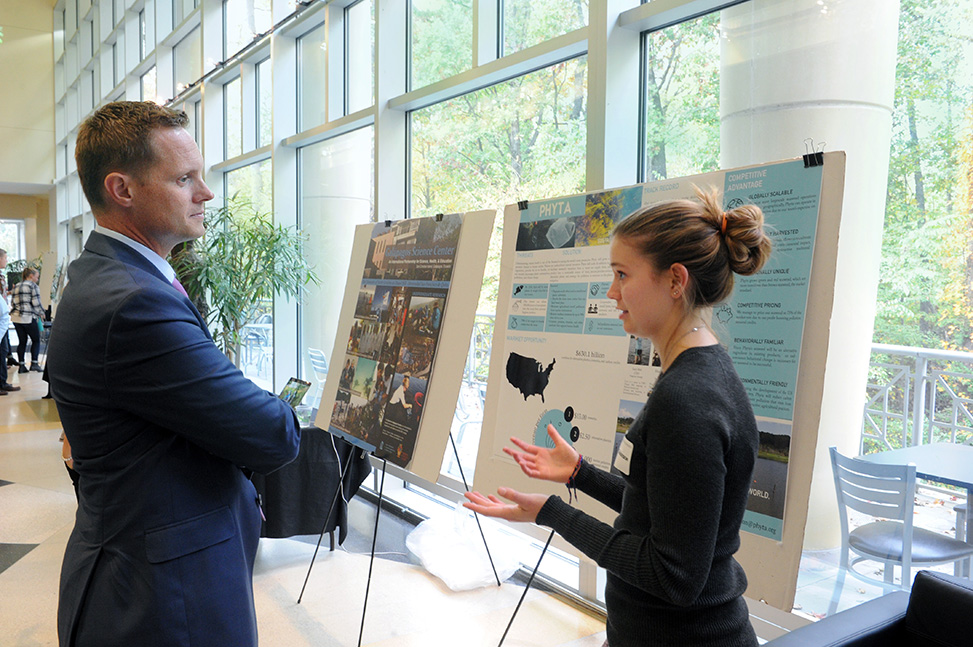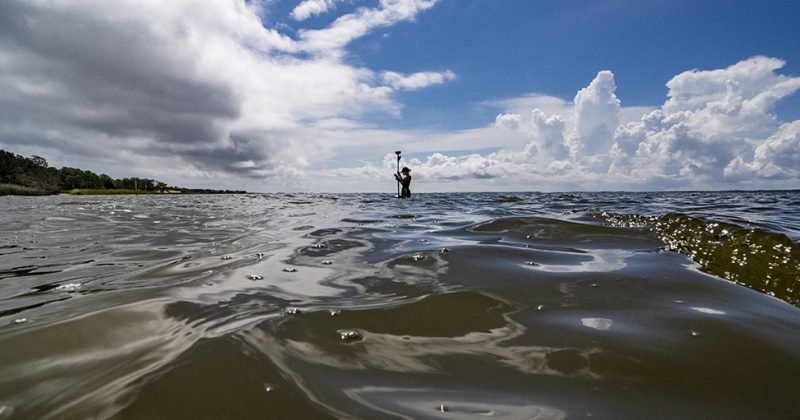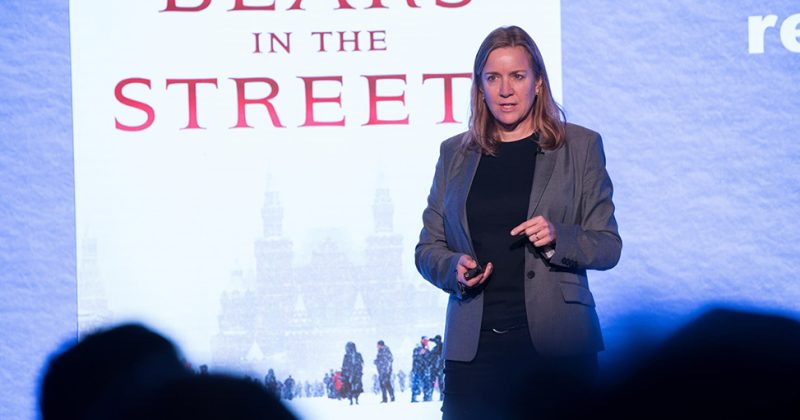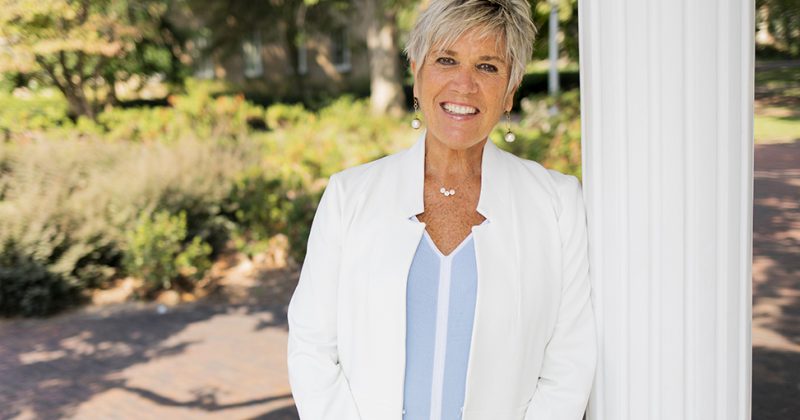
Troy Blackburn (pictured at a 2019 undergraduate research celebration) said students who participate in research learn valuable communication and leadership skills. (photo by Donn Young
Troy Blackburn (B.A. exercise and sport science ’98, Ph.D. human movement science ’04) is a professor of exercise and sport science and associate dean of the Office for Undergraduate Research. He says becoming involved in undergraduate research at Carolina “literally changed my life. It was without question the best experience I had as an undergrad.”
Q: Tell us briefly about your research in the department of exercise and sport science.
A: My research focuses on trying to identify biomechanical and neuromuscular factors that cause knee osteoarthritis, as well as rehabilitation approaches to prevent development of this disease or slow its progression. We primarily conduct studies on people who have injured their anterior cruciate ligaments, as they are at heightened risk for development of rapid knee osteoarthritis.
Q: What would you say to a student who is reluctant to get involved in undergraduate research?
A: I always tell students that I’m still not 100% sure what I want to do when I grow up, but that I’m certain of a lot of things that I do not want to do because I’ve tried them. You never know until you try, and there are limitless things to try at Carolina. When I came to UNC as an undergraduate, I had no idea what research was, much less that I could do it and actually like it. Students should be bold and actively seek out opportunities to identify their passion.

Q: How can students find out about research opportunities and funding for their projects?
A: Start by taking classes and going to campus events to find out what interests you and how those interests might be part of research going on at Carolina. The Office for Undergraduate Research has numerous ways to help students get involved with research, including workshops, an online database of research opportunities and appointments with staff members. Students can also meet with peer mentors in our Student Ambassador program. Students should remember that faculty are generally very passionate about their research, and it’s a topic they love talking about. Striking up a conversation with a faculty member during office hours is a great way to learn more about research and how to get involved.
Q: The University will launch the new IDEAs in Action general education curriculum in fall 2022. What role will undergraduate research play?
A: Undergraduate research will play a central role in the IDEAs in Action curriculum. All students will engage in novel research to satisfy the Research & Discovery requirement through approved courses or mentored research experiences. This will be a great opportunity for students to learn problem-solving skills, build tolerance for obstacles and apply classroom knowledge to real-world problems. While the goal of the R&D requirement isn’t necessarily to develop future researchers per se, students should be careful … they just might like it!
Q: Tell us about University Research Week, which will be celebrated Nov. 8-12.
A: University Research Week (researchweek.unc.edu) is designed to celebrate the vibrant research community at Carolina and provide opportunities for students to learn more about research and discover ways to get involved. Programming for the week involves symposia, workshops, tours of research facilities and interest group meetings. The theme is “Research Perseveres,” and much of the programming this year will focus on how the groundbreaking research being conducted at Carolina benefits the citizens of North Carolina, the United States and the world.
Q: What skills do students gain doing research that they can use in their future careers?
A: Undergraduates who participate in research display greater gains in communication and leadership skills, tolerance for obstacles, independence, self-confidence and problem-solving skills compared to their peers who do not participate in research.
Learn more about undergraduate research at our.unc.edu.
Interview by Kim Weaver Spurr ’88
Published in the Fall 2021 issue | The Scoop
Read More

A merger of land and sea
Union of geological and marine sciences disciplines erases artificial boundaries….



